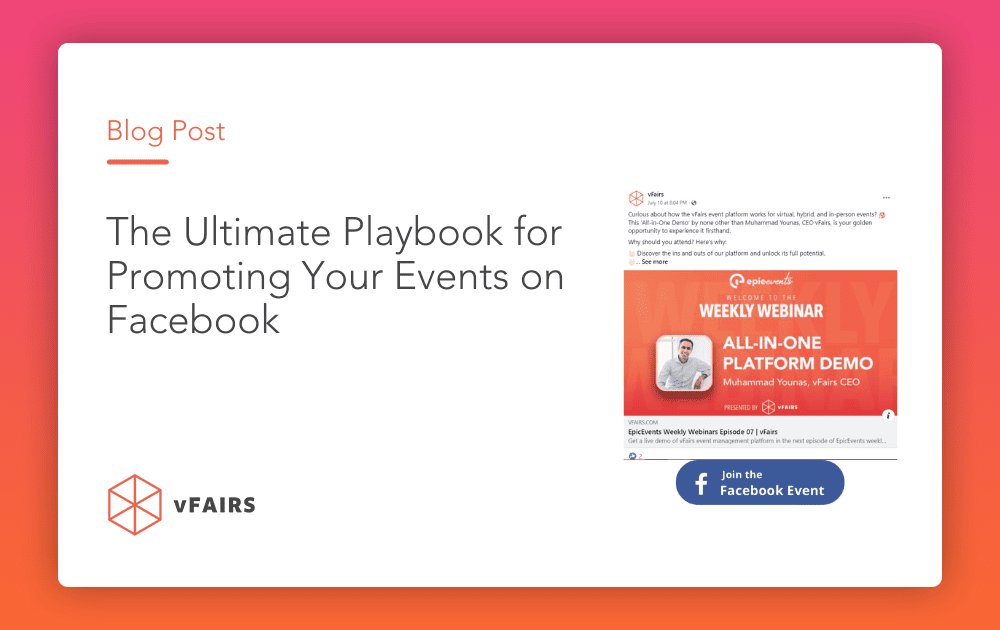In the digital age, where social media platforms and event marketing plays a crucial role in connecting people, Facebook stands out as a powerhouse for event promotion. With its dedicated feature called “Facebook Events,” event organizers can tap into a vast network of potential attendees and create a buzz around their upcoming gatherings.
In this blog, we will delve into the immense importance of utilizing Facebook events for event promotion and explore the myriad of benefits it offers. From increasing event visibility to driving attendee engagement, Facebook events has become an indispensable tool for any event marketer looking to maximize their reach and achieve remarkable success. So, let’s dive in and discover how you can leverage Facebook events to take your event promotion to new heights.
Understanding Your Event’s Goals and Target Audience
Before diving into promoting your event on Facebook, it’s crucial to have a clear understanding of your event’s goals and identify your target audience. This strategic approach will allow you to tailor your event ads & promotion efforts for maximum impact. Let’s break it down step by step.
Defining Your Event’s Objectives
Start by clearly defining the objectives of your event. Are you aiming to raise awareness for a cause, drive ticket sales, or foster networking opportunities? Having well-defined goals will guide your promotion strategy and help you measure success. For example, if your objective is to sell tickets, your promotional efforts will focus on highlighting the unique value and benefits attendees will gain from attending.
Identifying the Target Audience and Their Interests
Next, identify your target audience. Who are the people most likely to be interested in attending your event? Consider demographics such as age, location, and occupation, as well as psychographics such as interests, preferences, and behavior. For instance, if you’re organizing a music festival, your target audience might include music enthusiasts, fans of specific genres, and local residents.
Tailoring Your Event Promotion Strategy Accordingly
Once you have a clear understanding of your event’s objectives and target audience, you can tailor your promotion strategy to effectively reach and engage them using Facebook Events. Here are a few examples:
Create Compelling Content
Develop engaging and shareable content that resonates with your target audience. For a tech conference, you could share informative articles, industry insights, and speaker highlights to pique the interest of professionals in the tech sector.
Utilize Targeting Options
Leverage Facebook’s targeting options to reach your specific audience. With Facebook’s advanced targeting features, you can narrow down your reach based on demographics, interests, and behaviors. For a yoga retreat targeting health-conscious individuals, you could target users interested in wellness, fitness, and mindfulness.
Collaborate with Influencers
Identify influencers or industry experts whose audience aligns with your target attendees. Partner with them to promote your event through sponsored posts, guest appearances, or endorsements. For instance, if you’re hosting a food festival, teaming up with a renowned food blogger can amplify your reach within the foodie community.

By understanding your event’s objectives, identifying your target audience, and tailoring your promotion strategy accordingly using Facebook Events, you can optimize your efforts and ensure that your event reaches the right people on Facebook.
How to Create a Facebook Event
Creating a Facebook Event is a powerful way to promote your upcoming event and engage with potential attendees. By following these steps and ensuring your event page is visually appealing, informative, and engaging, you can attract a broader audience, increase event awareness, and maximize attendance.
Step 1: Log in to Your Facebook Account
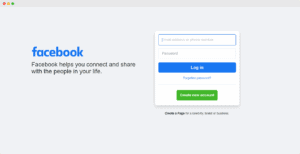
Visit the Facebook website and log in to your account. If you don’t have an account, you can easily create one by providing the required information.
Step 2: Navigate to the Events Tab
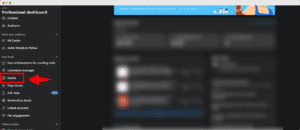
Once logged in, locate the “Events” tab on the left-hand side of your Facebook home page. Click on it to access the Events section.
Step 3: Click on “Create Event”
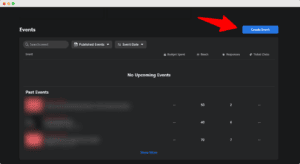
In the Events section, click on the “Create Event” button located at the top right corner of the page. This will initiate the event creation process.
Step 4: Provide Event Details
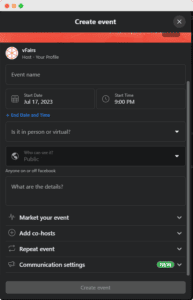
Fill in the required information about your event in the provided fields. This includes the event name, date, start time, end time, and location. Be sure to choose an appealing and descriptive event name that captures the essence of your event.
Step 5: Customize Your Event Page
Add a captivating cover photo that represents your event visually. This could be a high-quality image related to the event theme or an eye-catching graphic that conveys important details. You can also include additional event photos and videos to showcase the event’s highlights or provide more information.
Step 6: Craft a Compelling Event Description
Write a compelling event description that provides essential details about your event. Include information about the event’s purpose, key features, speakers, and any unique elements that make it stand out. Use persuasive language to engage potential attendees and create excitement.
Step 7: Set Privacy Settings
Choose the privacy setting for your event. You can make it public, private, or accessible to a specific group of people based on your event’s target audience and purpose.
Step 8: Select Event Category and Tags
Choose an appropriate event category from the provided options to help potential attendees discover your event. Add relevant tags to further enhance visibility and ensure your event appears in relevant searches.
Step 9: Preview and Publish Your Event
Review all the information you have entered to ensure accuracy and completeness. Take a moment to preview your event page to ensure it appears as intended. Once you are satisfied, click on the “Publish” or “Create” button to make your event live.
Step 10: Promote Your Event
After creating your event, don’t forget to promote it. Share your event on your personal Facebook profile, invite friends, and encourage them to share it with their networks. Utilize other marketing channels, such as email newsletters, your website, or other social media platforms, to expand your event’s reach.
Setting Up a Compelling Facebook Event Page
When it comes to promoting your event on Facebook, a compelling Facebook event page is your ticket to grabbing the attention of potential attendees. Let’s explore how you can create an enticing Facebook event page using Facebook Events.
Creating an Engaging Event Title and Description
Make your event title catchy and concise, capturing the essence of your event. Highlight key features, such as guest speakers or unique activities. Craft a captivating event description that provides essential details while generating excitement. Use persuasive language and include relevant keywords to optimize visibility in Facebook Events searches.
Choosing an Eye-Catching Cover Photo and Event Visuals
Visuals play a vital role in capturing attention. Select a visually striking cover photo that represents your event. It could be a captivating image related to your event theme or a sneak peek of what attendees can expect. Throughout your event page, incorporate compelling visuals, such as photos or videos, to enhance engagement and entice potential attendees.
Optimizing Event Details, Including Date, Time, and Location
Ensure that your event details are complete and accurate. Specify the date, start and end time, and venue location to provide clarity to your audience. When using Facebook Events, you can utilize interactive features such as location maps, which enable attendees to easily navigate to your event venue.
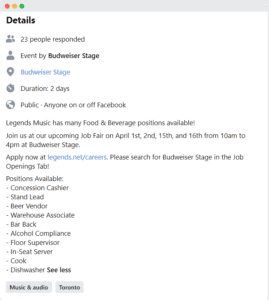
Utilizing Event Tags and Categories for Better Visibility
When setting up your Facebook event page, take advantage of event tags and categories to increase visibility. Choose relevant tags that align with your event’s theme, industry, or target audience’s interests. Categorize your event accurately to ensure it appears in relevant Facebook Events searches, maximizing exposure to potential attendees.
With an enticing Facebook Event page, you’ll be well on your way to attracting attendees and generating buzz for your event.
Leveraging Facebook Ads for Event Promotion
To take your event promotion on Facebook to the next level, utilizing Facebook Ads is a game-changer. Here’s how you can leverage the power of Facebook Ads to effectively promote your event.
Go Over Facebook’s Advertising Options
Facebook provides a range of advertising options to promote your event on Facebook Events. Boosted event posts allow you to amplify the reach of your event to a wider audience. Carousel ads enable you to showcase multiple images or videos, providing more engaging content. Sponsored stories allow you to leverage user-generated content to increase event visibility. Familiarize yourself with these options to choose the most suitable format for your event promotion.
Define Your Ad Budget and Objectives
Before creating your ads, establish a clear budget and define your objectives. Determine how much you’re willing to invest in advertising and align it with your event goals.
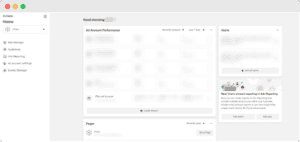
Whether you want to increase event awareness, drive ticket sales, or boost engagement, having well-defined objectives will help you allocate your budget effectively.
Create Targeted Ads Based on Audience Demographics and Interests
One of the key advantages of Facebook Ads is the ability to target specific audiences. Define your target audience based on demographics such as age, location, gender, and interests related to your event.
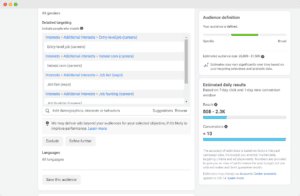
For example, if you’re hosting a fitness conference, you can target fitness enthusiasts, professionals in the wellness industry, or individuals interested in healthy living. Craft compelling ads tailored to resonate with this specific audience, emphasizing how your event addresses their interests and needs.
Utilize Compelling Ad Creatives and Ad Formats
Make your ads visually appealing and compelling to capture the attention of your target audience. Use high-quality images or videos that showcase the highlights of your event or the value attendees will gain.
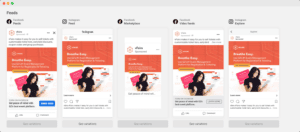
Experiment with different ad formats such as images, videos, or slideshows to find the most effective way to convey your message. Craft engaging ad copy that highlights the unique aspects of your event and includes a clear call-to-action to encourage users to take action, such as registering or purchasing tickets.
Monitor Ad Performance and Make Necessary Adjustments
Once your ads are live, closely monitor their performance using Facebook’s ad management tools. Track metrics such as impressions, clicks, conversions, and cost per result to evaluate the effectiveness of your campaign. Analyze the data to identify strengths and areas for improvement. Make necessary adjustments to your targeting, creatives, or budget based on the insights gained. Continuously optimize your ads to maximize their impact and drive better results.
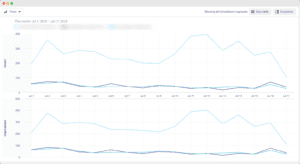
By leveraging the advertising options provided by Facebook Events, you can strategically promote your event to a highly targeted audience. Gain familiarity with Facebook’s advertising options, define your budget and objectives, create targeted ads based on audience demographics and interests, utilize captivating ad creatives, and continuously monitor and adjust your campaign for optimal results. With Facebook Ads, your event promotion efforts will reach new heights, attracting the right audience and driving remarkable engagement.
Building a Strong Online Community for Your Event
In addition to advertising, creating a vibrant online community around your event is essential for its success. Here are key strategies to build a strong online community using Facebook Events.
Create Event-Related Posts to Generate Buzz
Regularly post event updates, announcements, and behind-the-scenes content to generate excitement and anticipation. Share sneak peeks, speaker profiles, or teaser videos to keep your audience engaged and build anticipation for the event. Use Facebook Events to create and schedule these posts, ensuring consistent and timely communication.
Encourage User-Generated Content through Contests and Giveaways
Engage your audience by encouraging them to create and share content related to your event. Run contests or giveaways that require participants to share their experiences, photos, or thoughts about the event. Offer incentives such as event merchandise or exclusive access to further motivate participation. This user-generated content not only boosts engagement but also acts as social proof, attracting more attendees.
Engage with Your Audience through Comments and Messages
Actively respond to comments and messages from attendees on your Facebook Event page. Show genuine interest in their questions, feedback, or concerns. Promptly address inquiries and provide helpful information. By engaging with your audience, you demonstrate your dedication to creating a positive event experience, fostering trust and loyalty among attendees.
Utilize Facebook Groups and Events for Community Building
Create a dedicated Facebook Group for your event, where attendees can connect, share ideas, and network even before the event takes place. Encourage discussions, facilitate networking opportunities, and provide valuable resources or exclusive content to group members. Additionally, leverage the community-building features within Facebook Events itself, such as event discussion boards, to encourage interactions and create a sense of belonging.
Collaborate with Influencers or Industry Experts for Increased Reach
Partner with influencers or industry experts relevant to your event’s theme or target audience. Collaborate with them to create engaging content, such as guest blog posts, live Q&A sessions, or exclusive interviews, to be shared on both their and your Facebook Events pages. Their endorsement and expertise will lend credibility and expand the reach of your event to their followers, increasing visibility and attracting new attendees.
Through community engagement, you will foster a sense of excitement, cultivate attendee relationships, and create a memorable event experience for your attendees.
Implementing Effective Content Strategies
To drive interest and create a buzz around your event on Facebook Events, implementing effective content strategies is crucial. Here are key approaches to captivate your audience and generate excitement.
Craft Engaging and Shareable Content for Event Updates
Create compelling content that grabs the attention of your target audience. Craft informative and exciting event updates that highlight important details, such as new speakers, workshops, or special activities. Utilize eye-catching visuals, catchy headlines, and concise descriptions to make your posts easily shareable. Encourage attendees to spread the word about your event, expanding its reach organically.
Use Live Videos and Behind-the-Scenes Content to Create Anticipation
Harness the power of live videos and behind-the-scenes content to create a sense of anticipation. Stream live videos showcasing event preparations, exclusive interviews with speakers, or sneak peeks of event venues. Take your audience behind the scenes, offering glimpses of the event setup or rehearsals. This immersive experience builds excitement and makes attendees feel connected to the event even before it begins.
Share Testimonials and Success Stories from Previous Events
Tap into the power of social proof by sharing testimonials and success stories from previous events. Highlight positive feedback, attendee experiences, and outcomes achieved by participants. Utilize Facebook Events to share these stories, showcasing the value and impact your event delivers. This builds trust and credibility among potential attendees, making them more likely to register and attend.
Incorporate Storytelling Techniques to Create Emotional Connections
Utilize storytelling techniques to create emotional connections with your audience. Craft narratives that resonate with their aspirations, challenges, or desires. Share stories of how your event has positively impacted individuals or brought about meaningful change. Infuse emotion and authenticity into your content to evoke a strong response and forge a deeper connection with your target audience.
By implementing these content strategies on Facebook Events, you can effectively captivate your audience and generate excitement for your event. With a well-executed content strategy, you will drive engagement, attract attendees, and make your event truly unforgettable.
Promoting Ticket Sales and Registrations
When it comes to promoting ticket sales and registrations for your event, Facebook Events offers powerful tools to drive conversions. Follow these effective strategies to boost ticket sales and registrations using Facebook Events.
Integrate Ticketing Platforms with Facebook Events
Integrate your ticketing platform directly with your Facebook Event page. This seamless integration allows potential attendees to purchase tickets or register for your event without leaving Facebook. By reducing friction in the ticketing process, you increase the likelihood of conversions and streamline the user experience.
Create Urgency and Exclusivity through Limited-Time Offers and Discounts
Generate a sense of urgency and exclusivity by offering limited-time promotions or discounts on ticket purchases or registrations. Highlight these offers in your Facebook Event posts, creating a sense of FOMO (fear of missing out) and encouraging users to take immediate action. Utilize language such as “limited seats available” or “early bird discount” to create a sense of urgency and entice potential attendees to secure their spot.
Utilize Facebook’s Call-to-Action Buttons Effectively
Leverage the power of Facebook’s Call-to-Action buttons to drive ticket sales and registrations. Customize the button on your Facebook Event page to align with your desired action, such as “Get Tickets,” “Register Now,” or “Buy Now.” Place the button prominently on your event page to make it easily accessible for interested users, increasing click-through rates and conversions.
Retarget Interested Users with Personalized Messaging and Ads
Implement a retargeting strategy to reach users who have shown interest in your event but haven’t completed their ticket purchase or registration. Use Facebook’s retargeting pixel to track user behavior and show personalized messaging or ads to these users. Remind them of the value and benefits of attending your event, offer incentives, or address any concerns they might have, ultimately driving them to complete the registration process.
With a well-executed promotion strategy, you’ll see an increase in ticket sales, higher attendance rates, and a successful event experience.
Maximizing Event Promotion with Facebook Insights
To elevate your event promotion on Facebook to new heights, harnessing the valuable insights provided by Facebook is crucial. By leveraging the power of Facebook Insights, you can maximize your event promotion efforts and drive exceptional results. Let’s explore how you can unlock the potential of data for effective event marketing on Facebook Events.
Understand the Metrics and Insights Available on Facebook
Delve into the array of metrics and insights offered by Facebook. Gain a comprehensive understanding of audience engagement, reach, impressions, and more. Familiarize yourself with key metrics such as click-through rates (CTRs), conversions, event responses, and post engagement. These insights will equip you with a deep understanding of the effectiveness of your event promotion strategies.
Analyze Data to Evaluate the Success of Your Event Promotion Efforts
Carefully analyze the data provided by Facebook Insights to evaluate the success of your event promotion. Uncover trends, patterns, and correlations within the metrics to assess the impact of your promotional activities. Evaluate the performance of different ad campaigns, posts, and engagement strategies. Identify which approaches garnered the highest engagement, conversions, or ticket sales.
Make Data-Driven Decisions for Future Event Promotion Strategies
Utilize the insights derived from Facebook Insights to make informed, data-driven decisions for future event promotion strategies. Leverage the data to identify areas that require improvement or adjustment. For instance, if you notice a low conversion rate from a specific audience segment, consider refining your targeting or messaging. Optimize your promotional tactics, allocate ad spend more effectively, and enhance engagement with your target audience based on the valuable data insights.
Experiment and Iterate for Continuous Improvement
Embrace a culture of experimentation and iteration based on the insights provided by Facebook Insights. Test different approaches, ad creatives, targeting options, or posting schedules to discover what resonates most with your audience. Continuously monitor the results and adapt your strategies accordingly.
By learning from the data, you can refine your event promotion over time, fostering continuous improvement and driving increasingly impactful results.
Engaging with Attendees Before, During, and After the Event
To create an immersive event experience, it’s vital to engage with attendees not only during the event but also before and after. By leveraging the features of Facebook Events, you can maximize attendee engagement and build lasting connections. Here’s how you can foster interaction and create memorable experiences.
Build Excitement Through Event-Related Posts and Updates
Fuel anticipation by regularly sharing event-related content leading up to the big day. Use captivating posts, such as behind-the-scenes insights, speaker highlights, or exclusive sneak peeks, to generate excitement. With Facebook Events, you can easily schedule and share these updates, keeping attendees engaged throughout the event journey.
Provide Event Reminders and Logistical Information
Ensure attendees are well-informed and prepared by providing timely event reminders and logistical details. Utilize the notification features of Facebook Events to send reminders about essential dates, registration deadlines, or session schedules. Share important information about parking, transportation, or any specific preparations attendees need to make. By keeping them informed, you enhance their overall event experience and alleviate any potential concerns.
Encourage Attendees to Share Their Experiences on Facebook
During the event, encourage attendees to actively participate and share their experiences on Facebook Events. Create event-specific hashtags and ask attendees to include them in their posts. Promote attendee-generated content by reposting or featuring their photos, videos, or testimonials. This not only boosts engagement but also expands the reach of your event as attendees share their positive experiences with their social networks.
Follow Up with Attendees Post-Event for Feedback and Testimonials
Maintain the connection and demonstrate your appreciation by following up with attendees after the event. Send personalized messages or emails thanking them for their participation and requesting feedback. Encourage them to share their thoughts, suggestions, and testimonials on the Facebook Events page. This feedback not only helps improve future events but also showcases your commitment to delivering valuable experiences to attendees.
By maximizing attendee engagement before, during, and after the event, you create a dynamic and interactive event ecosystem. Building excitement through event-related posts, providing event reminders and logistical information, encouraging attendees to share their experiences, and following up for feedback and testimonials, you create a sense of community and enhance the overall event experience for everyone involved.
Conclusion
In conclusion, leveraging the potential of Facebook Events is a powerful tool for promoting your events and engaging with your audience. Let’s recap the key strategies we discussed:
- Utilize the diverse features offered by Facebook Events to create compelling event pages and reach a wider audience.
- Understand your event goals and target audience to tailor your promotion strategy accordingly. This ensures your efforts are directed towards the right people with the right message.
- Set up a strong online community by creating event-related posts, encouraging user-generated content, and engaging with your audience through comments and messages.
- Harness the power of Facebook Ads to maximize the reach of your event. Define your budget and objectives, create targeted ads based on audience demographics and interests, and continuously monitor and adjust your campaign for optimal results.
- Build excitement and maintain engagement by providing event reminders, sharing logistical information, and encouraging attendees to share their experiences on Facebook Events.
- Stay active in your online community, respond to attendee inquiries, and foster a sense of belonging. By nurturing these relationships, you create a loyal and enthusiastic attendee base that will spread the word about your events.
- Embrace experimentation and adaptation based on audience response. Analyze the data, track the performance of your strategies, and make necessary adjustments to optimize your event promotion efforts. What works for one event may not work for another, so be open to trying new approaches and refining your tactics.
With the power of Facebook Events, you have a powerful platform at your fingertips to promote your events, engage with attendees, and create memorable experiences. By implementing the strategies we’ve discussed, you can elevate your event promotion game, attract a wider audience, and ensure the success of your future events.
So, get started, be creative, and watch your events thrive with Facebook Events!

